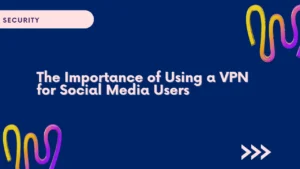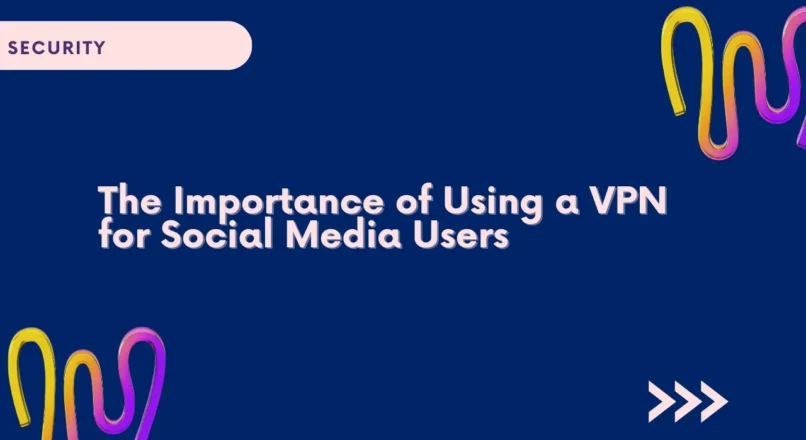Social media has become a big part of our lives. Many of us share a lot of personal information on platforms like Facebook, Instagram, Twitter, and more. While social media allows us to stay connected, oversharing can also put your privacy and security at risk. This is why using a virtual private network (VPN) is crucial for social media users.

What is a VPN?
A VPN, or Virtual Private Network, is a service that creates a secure connection over a less secure network, like the public internet. It encrypts your internet traffic and masks your online identity.
When you connect to a VPN service, your web traffic is routed through an encrypted tunnel to a remote server operated by the VPN provider. This creates an encrypted virtual tunnel between your device and the VPN server.
Some key features of using a VPN:
Encryption – A VPN uses advanced encryption protocols to fully encrypt all the data you send and receive when connected to the internet. This prevents third parties like your internet service provider (ISP) from viewing your activity.
Privacy – By masking your IP address and location, a VPN keeps your online identity, browsing, and traffic private. You can browse anonymously and prevent tracking by advertisers, websites, and your ISP.
Access Restricted Content – VPNs allow you to change your virtual location by connecting to servers in different countries. This lets you bypass geographic restrictions to access blocked websites and content.
Public Wi-Fi Security – Public Wi-Fi networks can be easily hacked. A VPN secures your connection on public networks to keep your data safe from snoopers.
Better Internet Connection – VPNs can sometimes provide faster internet speeds by encrypting your traffic and finding the fastest routes.
VPN services have become essential tools for protecting your privacy, data security, and identity in today’s digital world. They are used globally by businesses, individuals, activists, and any internet users concerned about their safety online.
Protect Your Identity Online
When you connect to public Wi-Fi or cellular networks without a VPN, all your online activity is vulnerable. Your sensitive data like passwords, messages, and browsing history can be intercepted by hackers, cybercriminals, and even government surveillance agencies. A VPN adds a layer of encryption to your internet connection to keep your online activity private.
Secure Public Wi-Fi Access
Unsecured public networks in cafes, airports, etc. are a hotspot for hackers looking to steal data. A VPN encrypts your connection on any network to keep your social media use secure.
Bypass Social Media Censorship
Some countries block access to major social media sites. A VPN lets you bypass geo-restrictions to access your social media accounts anywhere.
Stop Advertisers from Tracking You
VPNs prevent advertisers, ISPs, and social media companies from tracking your browsing habits across sites and apps.
Defend Against Hacking Attempts
Encrypting your web traffic keeps hackers from intercepting your login credentials or personal info as you use social media.
Choose the Right VPN
When choosing a VPN for social media, look for one that offers robust privacy protections, does not log user activity, and has servers worldwide for changing your virtual location. The best VPNs have user-friendly apps for all devices.
Using social media safely means being smart about what you share and taking steps to protect your privacy. A VPN provides an added layer of security that is vital for social media users in today’s digital landscape.


Leave a reply
You must login or register to add a new comment .